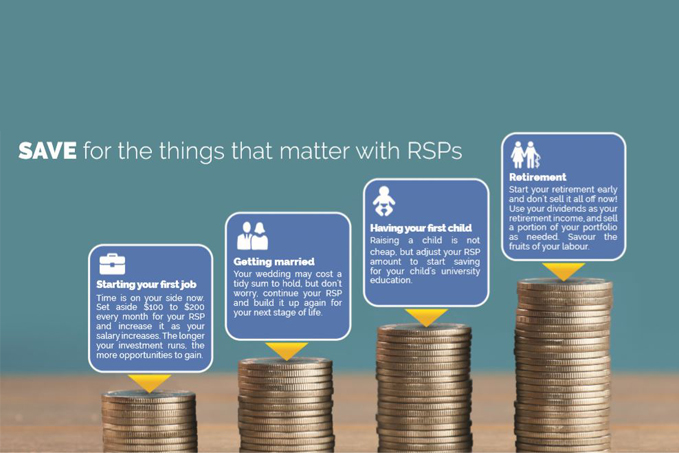Dividends: A shield in uncertain times

2018 has seen significant market volatility. Stock prices and corresponding indices have risen gradually only to dip sharply, leaving investors uncertain about the future. Such unfavourable market conditions can make you feel like you are stuck, doubting your investment decisions. In times like these, what should you do to get some returns? Fret not: dividends could provide a shield during these uncertain times.
What is a dividend?
A dividend is a portion of a company’s earnings that is paid to shareholders as a reward. Companies pay dividends for various reasons, but most commonly, shareholders expect to be paid dividends for having enough trust in the company to invest in their stock. If a company declares higher dividends than in previous years, most of the time it signifies that the company is doing well. Dividend funds work in a similar fashion.
What is a dividend fund?
Funds are often composed of underlying stocks, bonds, and/or other assets selected by professional fund managers so that investors do not need to build one for themselves. Dividend income funds typically own a diversified selection of dividend-paying assets. This makes them less risky than individual stocks, as an entire market is less likely to collapse than a single company. Fund managers also adjust the asset allocation for their stocks according to changes in the economic cycle to maximise gains and minimise risk.
These funds collect the dividends and coupons paid to them in order to pay investors, and payment periods may be monthly, quarterly, semi-annual, or annual. However, take note that funds are not risk-free: you will still bear the risk of capital depreciation if there is any.
How do dividends help me?
Dividends provide you with passive income which can be a good shield against uncertainties. For example, even during bad market conditions, you can still receive income from funds that distribute dividends. The dividends paid can then be reinvested back into the same fund to accumulate more gains for your investments as the years pass.
Alternatively, you can cash out your dividends once they are paid and use them for your monthly expenses. With current market conditions looking uncertain, investing in funds that pay dividends may be an effective investment strategy.
How do I decide which funds to buy based on dividend?
You can first decide on the dividend yield that you would like to receive. Think of the proportion of your invested amount that you would like to receive in dividend income per year, then divide it by the capital required to invest. The type of fund also matters. Equity-based funds usually pay a higher dividend yield (typically 4-6% p.a) than their fixed-income peers (2-4% p.a), but they are also subject to higher volatility.
If you are uncertain about which funds to focus on, you can consider, for example, a multi-asset dividend income fund. These funds have balanced portfolios that combine equities and bonds, and they pay dividends from coupons received, typically ranging between 4-6% per annum.
To start investing in a dividend portfolio, try our intuitive fund finder to help you identify funds based on your requirements.
Weather market uncertainties with dividend funds!
Weathering uncertain market conditions is possible with dividend-paying funds, and it is an effective strategy that even new investors can employ to their advantage. Open an account today for free and start investing in dividend-paying funds with dollarDEX at zero charges. This means there are no platform fees, switching fees, and sales charges when you invest on dollarDEX. Your money is fully invested, which is a great way to maximise your investment dollars!
YOU MAY ALSO LIKE
All information here is for GENERAL INFORMATION only and does not take into account the specific investment objectives, financial situation or needs of any specific person or groups of persons. Prospective investors are advised to read a fund prospectus carefully before applying for any shares/units in unit trusts. The value of the units and the income from them may fall as well as rise. Unit trusts are subject to investment risks, including the possible loss of the principal amount invested. Investors investing in funds denominated in non-local currencies should be aware of the risk of exchange rate fluctuations that may cause a loss of principal. Past performance is not indicative of future performance. dollarDEX is affiliated with Aviva but dollarDEX does not receive any preferential rates for Aviva products as a result of this relationship. Unit trusts are not bank deposits nor are they guaranteed or insured by dollarDEX. Some unit trusts may not be offered to citizens of certain countries such as United States. Information obtained from third party sources have not been verified and we do not represent or warrant its accuracy, correctness or completeness. We bear no responsibility or liability for any error, omission or inaccuracy or for any loss or damage suffered by you or a third party (including indirect, consequential or incidental damages) arising in any way from relying on this information.
This information does not constitute an offer or solicitation of an offer to buy or sell any shares/units.
This article has not been reviewed by the Monetary Authority of Singapore.
Information is correct as of 11/02/2019.




